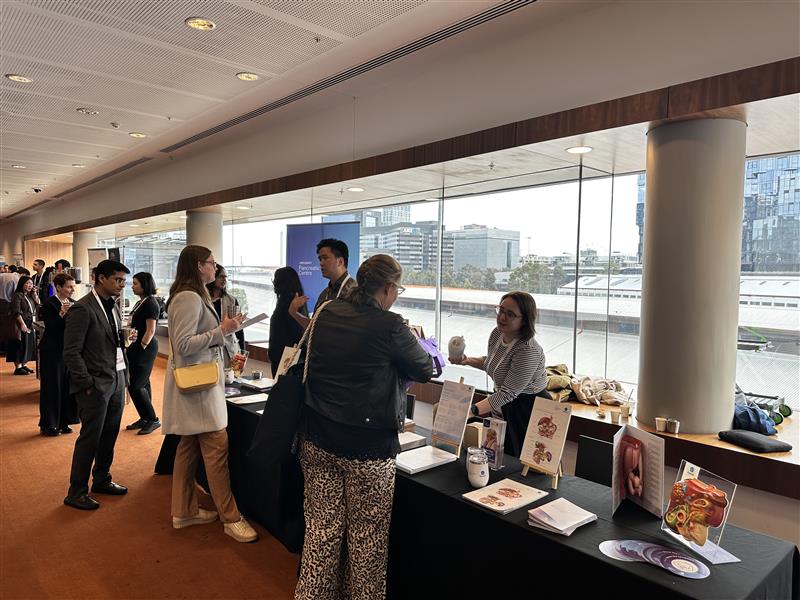The Jreissati Pancreatic Centre was proud to be part of two major international conferences held in Melbourne from the 19th to 22nd of September, during Australian Gastroenterology Week 2025.
As a platinum sponsor of the Pancreas Summit 2025, the Centre supported several key sessions across the program, including the Young Investigator Breakfast and expert presentations on systemic therapy for pancreatic cancer. These sessions covered new approaches to treatment, facilitated interactions between esteemed and junior researchers, and highlighted the rapid pace of innovation in the field. Centre Director Professor Andrew Metz also introduced the APRISE Program, the Centre’s flagship national pancreatic cancer screening initiative. APRISE is a multicentre effort involving more than 25 hospitals across Australia, focused on improving early detection for people at high risk of developing pancreatic cancer.
The Centre’s exhibitor table drew strong interest from clinicians, researchers and trainees. Free educational resources were available throughout the week, including newly developed A4 tear-away information sheets for use in specialist clinics, and a 3D pop-up model of the gastrointestinal tract. These tools were designed to support clearer conversations about pancreatic anatomy and health.
“This is such a creative and practical resource. I can already see how useful it will be in the clinic,” said one delegate.
“Patients often struggle to understand where the pancreas is. The pop-up book is an excellent way to support education,” noted another.
To date, more than 1,200 copies of the book have been distributed across Australia and internationally.
In parallel, the Centre presented two scientific posters at the World Congress of Gastroenterology, held during the same week. The first highlighted progress and impact from the APRISE screening program. The second introduced the Australian Pancreatic Cyst Registry, a national initiative also led by the Centre that will track long-term outcomes for individuals with pre-cancerous pancreatic cysts and help identify factors linked with cancer progression. Both posters generated strong interest and led to new discussions with potential collaborators in Australia and overseas.
Further information
- Learn more about our clinical research
- Access our free resources for patients and clinicians
- Subscribe to our newsletter for trial updates and community stories





